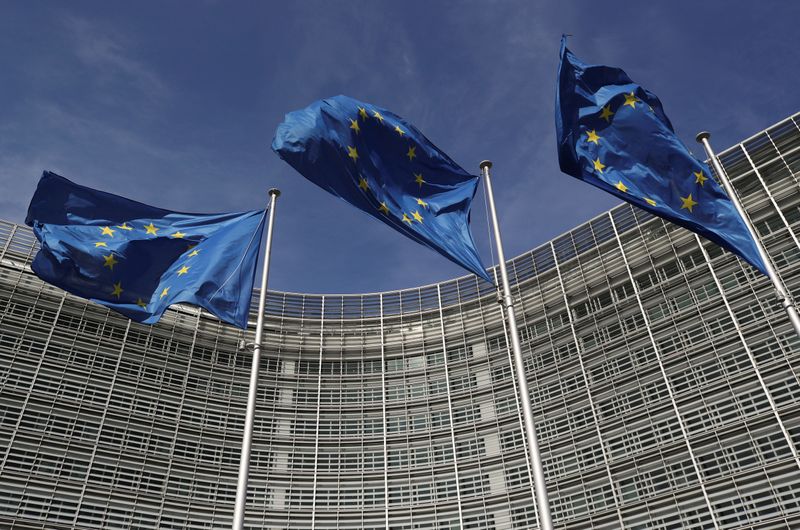By Robin Emmott and John Irish
BRUSSELS/PARIS (Reuters) - The European Union will target eight Iranian militia and police commanders and three state entities with sanctions next week over a deadly crackdown in November 2019 by Iranian authorities, three diplomats said on Wednesday.
The travel bans and asset freezes will be the first time the EU has imposed sanctions on Iran for human rights abuses since 2013 and are set to be put in place some time next week after the Easter holidays in Europe, the diplomats said.
The individuals to be targeted include members of Iran's hardline Basij militia, who are under the command of the Revolutionary Guards, the most powerful and heavily armed security force in the Islamic Republic.
Reuters reported on Tuesday that the EU was planning the sanctions. The bloc declined to comment on Tuesday and Wednesday.
Iran has repeatedly rejected accusations by the West of human rights abuses. The Iranian Embassy in Brussels was not immediately available for comment, nor were other Iranian officials.
About 1,500 people were killed during less than two weeks of unrest that started on Nov. 15, 2019, according to a toll provided to Reuters by three Iranian interior ministry officials at the time. The United Nations said the total was at least 304.
Iran has called the toll given by sources "fake news".
On March 9, U.N. special rapporteur on the situation of human rights in Iran, Javaid Rehman, presented a report saying Tehran used lethal force during the protests and chided it for failing to conduct a proper investigation or for failing to hold anyone accountable.
NUCLEAR DEAL
Asked why the bloc had taken so long to process its sanctions response, one EU diplomat involved in the preparations cited the need for strong evidence against those hit with the punitive measures.
The bloc has also shied away from angering Iran in the hope of safeguarding a nuclear accord Tehran signed with world powers in 2015.
The three diplomats said the sanctions were not linked to efforts to revive the nuclear deal, which the United States pulled out of but now seeks to re-join. That deal made it harder for Iran to amass the fissile material needed for a nuclear bomb -- a goal it has long denied -- in return for sanctions relief.
After days of protests across Iran in November 2019, Supreme Leader Ayatollah Ali Khamenei issued an order to crackdown on protesters, Reuters reported https://www.reuters.com/article/us-iran-protests-specialreport-idUSKBN1YR0QR in December 2019. That order, confirmed by three sources close to the supreme leader's inner circle and a fourth official, set in motion the bloodiest crackdown on protesters since the Islamic Revolution in 1979.
In a statement following publication of the Reuters article, a spokesman for Iran's Supreme National Security Council described the death toll figure as "fake news," according to semi-official Tasnim news agency.

The United Nations has warned about a deterioration of human rights in Iran. Its March 9 report documented Iran's high death penalty rate, executions of juveniles, the use torture to coerce confessions and the lawful marriage of girls as young as 10 years old.